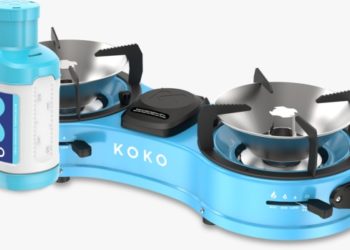The Special Economic Zones, or SEZs, are very specific and unique locations within a country that are affected by certain economic policies and regulations that are different from the rest of the country’s policies with the aim of promoting trade, investment and growth in industry. Such zones are aimed at providing provision of tax exemptions, regulatory relief, as well as facilities like roads, utilities, logistics etc. The purposes of special economic zones are to increase the volume of exports, bring in foreign direct investments and develop the economy.
In Kenya, examples include Konza Technopolis and Tatu City, which are beneficial to technology, manufacturing and logistics industries. SEZs are very important mechanisms of promoting the economic growth and competitiveness of member countries in the global arena. The law was passed by the Kenyan government in 2015 for the establishment of the SEZ’s that were meant to foster economic development and integrate the country’s economy into the middle-income class level.
The SEZ also serves as a strong tool for economic development offering various benefits that accelerate industrialisation investment growth and industry competing on a global scale. The regulated area has different policy regimes on special economic zones, tax holidays and modern infrastructure with a slogan of attracting Foreign direct Investment (FDI), to foster exports as well as create jobs.
SEZs have many advantages, but the most important one is tax breaks and fiscal incentives. In several cases, businesses located in SEZs benefit from lower corporate tax rates, custom duty exemptions as well as VAT exemption on imports and exports. In Kenya, for example, firms operating from special economic zones (SEZs) receive a 10-year corporate tax holiday followed by a lower rate of 15.0% over the next ten years, while the national corporate income tax rate is at 30%. SEZs no longer face these issues due to this fiscal atmosphere significantly increasing profitability in all acts, it takes a lot to persuade investors quality to be an SEZ.
Other than that, SEZs also offer modern infrastructure facilities, which are crucial for effective functioning of industries. With strong transport connections, energy systems, and digital infrastructure to support industry, in Kenya there are zones like Tatu City and Konza Technopolis. For example, Tatu City combines logistics, residential and industrial facilities in one zone to provide the ideal conditions for multinationals like Unilever and CCI Kenya to set up shop. Konza Technopolis is a science and technology park, low-carbon city incorporating high-value industrial activities which has been developed using the smart city brand.
The regulatory environment in SEZs presents a notable advantage. Streamlined administrative processes help minimize bureaucratic obstacles, allowing businesses to establish and operate more effectively. This efficient system features a one-stop shop for obtaining licenses, permits, and ensuring compliance, which conserves both time and resources for companies.
Moreover, SEZs are crucial for job creation and economic diversification. By accommodating a variety of industries, they generate employment opportunities for both skilled and unskilled workers, thereby enhancing livelihoods and lowering unemployment rates. For instance, SEZs in Kenya directly employ over 60,000 individuals, with many more benefiting from indirect job creation within the supply chain.
Despite their many benefits, SEZs encounter challenges such as high initial costs and the necessity for consistent policy enforcement. Nevertheless, there is a growing collaboration between governments and private entities to tackle these issues, ensuring that SEZs can reach their full potential as engines of economic growth.
In summary, SEZs provide a robust framework for industrial and economic advancement. With fiscal incentives, improved infrastructure, regulatory efficiency, and support for exports, they draw in investments, boost competitiveness, and create socio-economic advantages. As Kenya and other countries continue to develop these zones, SEZs will remain a fundamental aspect of contemporary industrial strategies.


















